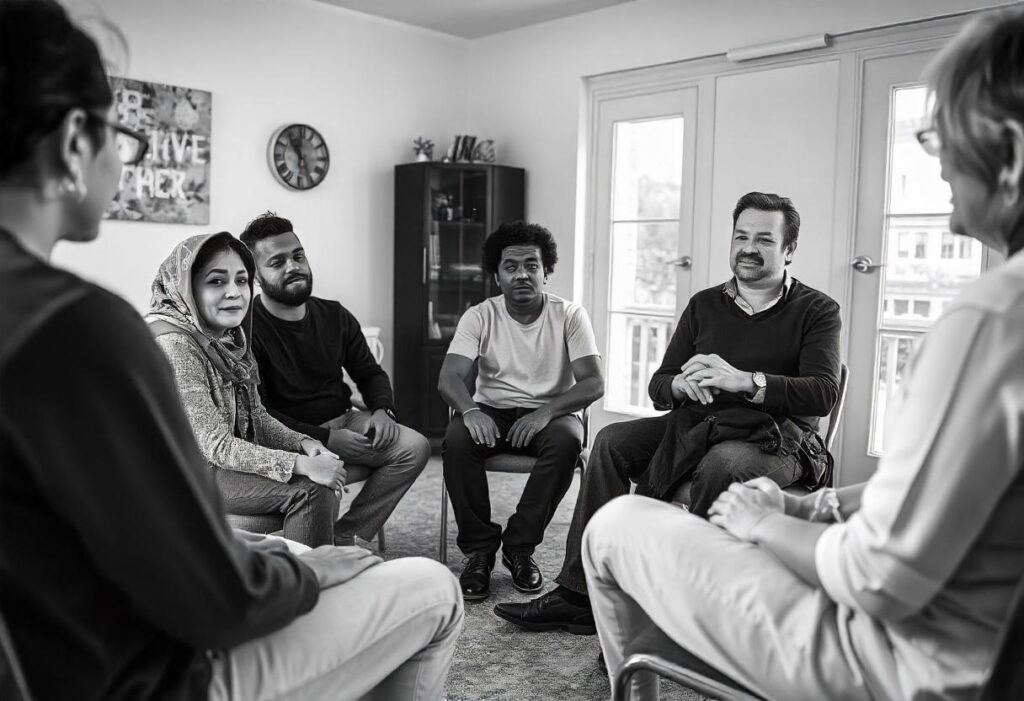One of people’s greatest natural needs is for love, which many people seek by attaining a certain level of popularity, acquiring material assets or acting a certain way. However, getting rich and beautiful falls short time and again to enhance one’s quality of life. Indeed, lasting happiness is built around deeper elements than such base desires.
In fact, efforts directed at showing love more successfully help people feel love. These actions are defined by actions of giving, as research shows that mental and physical health improve when people show acts of selflessness. The following benefits often come to those who are more inclined to give rather than receive:
- Lower blood pressure
- Less depression
- Longer life
- Greater happiness
- Greater self-esteem
In short, if you help other people through their problems, then you will also end up helping yourself.
Social Support Strengthens Everyone Involved

People who give without expecting a reward have greater mental and physical health
Sometimes, life may seem like walking a steep trail that can bring pitfalls, which means you may eventually need assistance from others in order to succeed. Virtually no one can claim to be truly independent, as everyone relies on someone at some point for help. To gain social support, it is recommended to love to other people, as they will end up loving you. Having social support will help you deal with even traumatic experiences that could lead to complications such as posttraumatic stress disorder1. In other words, you can deal with your problems in healthy ways if you seek help.
Many people remark that helping other people helps them forget their own problems. For instance, youths who are labeled as being self-centered can gain considerable perspective when they give their time and energy to others. Not only can such youths gain self-respect as they disabuse stereotypes about themselves, but they may also gain the respect and friendship of those whom they help. They may even find stable mentors who will help them take positive directions throughout life.
Marriage is another area that can be incredibly frustrating when people’s emotional needs go unmet, but the same principles of giving apply within this relationship. Spouses who focus their attention on giving to their mates tend to experience greater satisfaction than those who demand attention in marriage. In other words, spouses who are generous often gain more love and have better marriages.
Finding the Right Motives
Many people immediately think of money when they hear the word “generous.” Indeed, giving your money to someone who survived a natural disaster survivors is a type of giving that society commonly honor, while other people collect funds for similar charitable causes through community fund raisers. However, you could also give your time, energy and experience to someone who could learn from you.
However, a word of caution: make sure that giving does not become a horrible sacrifice, lest you may regret it. For example, someone may mistakenly idolize the respect of her neighbors, so she may go to unnecessary lengths to attain it. Unfortunately, to give while expecting a reward will undermine any emotional benefits of giving. In other words, volunteers who donate out of compassion yield better benefits, such as living longer on average. Those who volunteer for self-oriented reasons do not experience any of such positive health benefits, but rewards that come from selfless giving often come unexpectedly and with greater emotional payout2.
How to Begin Being Generous
Even after a loss of personal nature, someone may still have much to give. After enduring tragedy or perhaps pursuing recovery of some sort, someone may constantly receive considerable help from other people. People in such situations can evaluate how much help they need; then, they can use their experience to help others.
Of course, there are many ways to give. A listening ear is something that most people can give without paying a dime. Furthermore, sincere commendation is an excellent gift that all people can benefit from, and such kindness can actually move someone who seems too lazy to improve. Be it with time, energy, words of encouragement or material resources, you could help someone if you first take the following steps:
- Imagine what it would be like to be in someone else’s shoes
- Research the problem someone has
- Get tips on what to do or say3
- Do not expect a reward
- Take the initiative to find out what you need to help4
If individuals keep an eye on the interests of others, then beautiful acts of kindness result. Perhaps you may find opportunities to extend kindness, but remember that even small acts are worthy of the effort. Take initiative to feel the joy of giving.
Do addiction or mental illness plague your life? The first step to helping others is to help yourself get well; in response, call our toll-free, 24 hour helpline now to help yourself or someone you love overcome addiction.
1 http://www.ncbi.nlm.nih.gov/pmc/articles/PMC2921311/. Fatih Ozbay, Douglas C. Johnson, Eleni Dimoulas, C.A. Morgan, III, Dennis Charney, Steven Southwick. Psychiatry (Edgmont) 2007 May; 4(5): 35–40. Published online 2007 May. Retrieved January 5, 2016.
2 http://www.ipearlab.org/media/publications/konrath__brown_giving_support.pdf. Sara Konrath Institute for Social Research, University of Michigan, United States Department of Psychiatry, University of Rochester Medical Center. Published in press 2012. Retrieved January 5, 2016.
3 http://smokefree.gov/social-support-no-js. U.S. Department of Health and Human Services, National Institutes of Health, National Cancer Institute. “Social Support.” Retrieved January 5, 2016.
4 https://www.volunteer.gov/. America’s Natural and Cultural Resources Volunteer Panel; Featured Opportunities; Find a Volunteer opportunity. Retrieved January 5, 2016
You might also like: Addiction and Changing Your Ways


